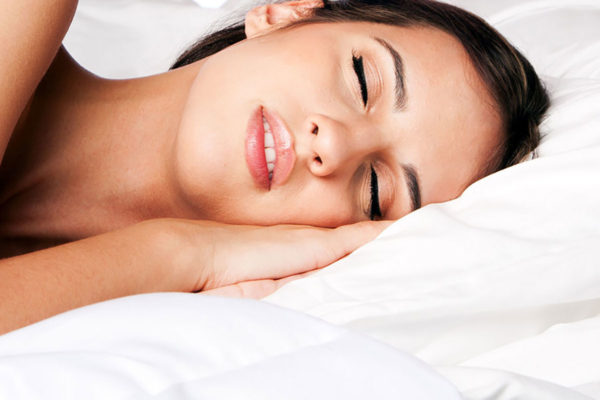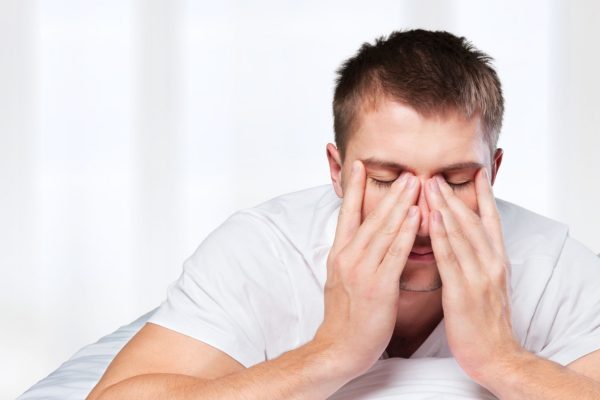Knowing Is Half The Battle
The overwhelming majority of sleep apnea cases involve obstructive sleep apnea (OSA), which is caused by some type of obstruction in the airway. Understanding the causes of sleep apnea and common sleep apnea symptoms can make a major difference in your journey to better health. Patients who know what to look for can seek treatment sooner and get many more precious nights of quality sleep.
In this helpful guide, Dr. Sheila Birth of Birth & Fletcher Orthodontics explains causes and symptoms of sleep apnea so you can tell when it’s time to seek professional help.


Causes of Sleep Apnea
Unlike many other conditions with a single cause, obstructive sleep apnea can occur due to various factors that include:
- Obesity – Excess tissue around the neck narrows the airways, making it harder to breathe at night.
- Menopause – Menopause often causes weight gain which can contribute to more narrow airways and cause or worsen OSA.
- Gender – Current studies suggest that men are much more likely to present symptoms of obstructive sleep apnea than women.
- Genetics – Having a family history of OSA makes patients more predisposed to developing it themselves.
- Enlarged Oral Tissues – An enlarged tongue, tonsils, or other enlarged oral tissues are more likely to fall back and obstruct your airways while you sleep. Swollen tonsils (tonsillitis) are a common factor in childhood sleep apnea.
- Alcohol & Tobacco Use – Alcohol contributes to weight gain, hormonal imbalance, slower breathing and the relaxing of oral tissues. Tobacco use irritates nose and throat muscles, causing them to swell.
- Gastroesophageal Reflux Disease – Gastroesophageal reflux disease, or GERD, causes stomach acid to travel back into the esophagus. This causes irritation and swelling, which can close off the airway, causing and contributing to OSA symptoms.
Common Symptoms of Sleep Apnea
While loud, frequent snoring is one of the most obvious symptoms of sleep apnea, not everyone who snores suffers from sleep apnea. Some snoring is actually quite common, but in certain cases may indicate sleep disorders like sleep apnea.
Other symptoms of sleep apnea include:
- Irritability
- Lack of ability to focus or perform daily tasks
- Sore throat
- Dry mouth
In children, sleep apnea symptoms are often mistaken for ADHD because of the similarities between symptoms. Common symptoms of sleep apnea in children include:
- Sleep walking
- Bed wetting
- Night terrors
- Daytime fatigue
- Behavioral issues

Discover How Dr. Birth Can Help Manage Sleep Apnea Symptoms
At Birth & Fletcher Orthodontics, Dr. Birth can help patients understand causes and symptoms of sleep apnea. Once your symptoms are accurately diagnosed, Dr. Birth can prescribe effective treatment options, so you can sleep better and live a longer, healthier life.
Dr. Birth offers treatment for sleep apnea to patients in Fort Worth and surrounding areas such as River Oaks, Arlington, & Westover Hills, TX . To learn more about the causes and symptoms of sleep apnea, contact our dental office by dialing 817-502-9103. You can also fill out the contact form below, and one of our friendly team members will get back to you shortly.
Frequently Asked Questions
Can a deviated septum cause obstructive sleep apnea?
Can sleep apnea cause anxiety?
Can you have sleep apnea and no symptoms?
It’s important to pay attention to how you feel during the day, attend regular visits to your primary care provider for checkups, and call our dental office as soon as you or any bed partners suspect you may have sleep apnea.
Do symptoms of sleep apnea go away on their own?
- Heart Disease
- Hypertension
- Obesity
- Sexual dysfunction
- Insomnia
- Anxiety
- Depression
Sleep dentists are often the first medical practitioners to notice signs of sleep apnea due to their familiarity with the regions of the body most affected by the disease. That’s why it’s important to be on the lookout for signs and symptoms of sleep apnea.
